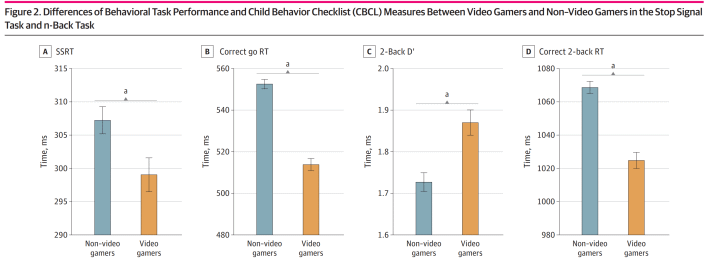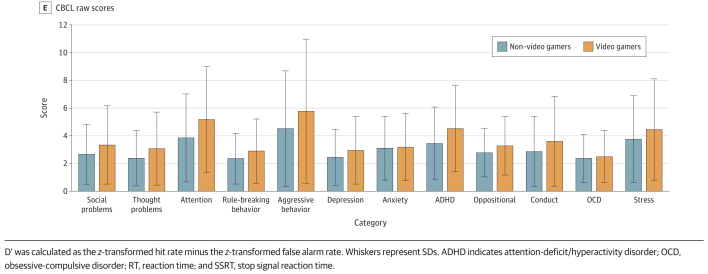Study Finds Video Games Could Improve Cognitive Ability In Kids, Take That, Parents

Now, before we start shouting from the rooftops that video games are the reason, let's note that the authors themselves caution against such a conclusion—not because they think it's false, but because they just don't know. By their own admission, the study isn't big enough and there's not enough data to draw such a conclusion.
However, the data they have is clear: children who played video games did indeed show "clear blood oxygen level-dependent signal differences" suggesting improvements in the tasking area of the brain, particularly with regards to inhibition control and working memory. The authors say that their findings "suggest that video gaming may be associated with improved cognitive abilities" due to alterations in brain function.
The subjects of the study didn't have consistent variation between age, BMI, or IQ, although one interesting division between the test subjects was that the gamers group was "disproportionately male." The authors didn't explain to what degree, but they did say that analysis showed that the data was consistent regardless of age, sex, IQ, sibling status, and combined parental income.
The authors also remarked that while previous studies have shown that video games can increase aggression and behavioral issues in children, they did not observe significant differences in those qualities between gamers and non-gamers despite that the gamers did typically score higher in those areas. In their conclusions, the authors state that the results "raise the intriguing possibility that video gaming may provide a cognitive training experience with measurable neurocognitive effects."
This is the largest study of its kind to date, and the results are encouraging not only for parents whose children are addicted to video games, but also for gamers like your author here who have spent most of the last thirty years in a pixelated fugue state.



